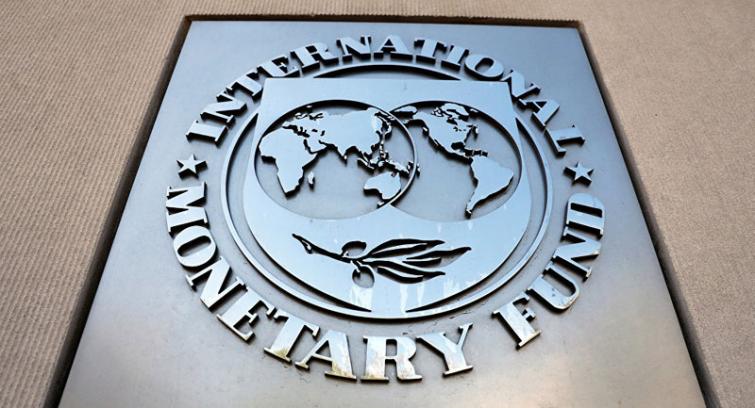 India's growth prediction
India's growth prediction
India to grow at 12.5 pc in FY 22, predicts IMF
New Delhi/UNI: The International Monetary Fund on Tuesday revised upward its growth projection for India to 12.5 per cent for financial year 2021-22 from 11.5 per cent estimated in January.
The IMF in its latest edition of World Economic Outlook, said it expects India's GDP at 12.5 per cent in FY22 the highest among emerging and advanced economies.
The GDP growth for FY23 is pegged at 6.9 per cent.
For the emerging and developing Asia regional group, the IMF revised projections for 2021 up by 0.6 percentage point, "reflecting a stronger recovery than initially expected after lockdowns were eased in some large countries (for example, India)."
"We are now projecting a stronger recovery for the global economy compared with our January forecast, with growth projected to be 6 per cent in 2021 (0.5 percentage point upgrade) and 4.4 per cent in 2022 (0.2 percentage point upgrade), after an estimated historic contraction of -3.3 percent in 2020," said Chief Economist Gita Gopinath.
She said the upgrades in global growth for 2021 and 2022 are mainly due to upgrades for advanced economies, particularly a sizeable upgrade for the United States (1.3 percentage points) that is expected to grow at 6.4 per cent this year.
"Other advanced economies, including the euro area, will also rebound this year but at a slower pace. Among emerging markets and developing economies, China is projected to grow this year at 8.4 per cent. While China's economy had already returned to pre-pandemic GDP in 2020, many other countries are not expected to do so until 2023," Gopinath said.
After an estimated contraction of -3.3 per cent in 2020, the global economy is projected to grow at 6 per cent in 2021, moderating to 4.4 per cent in 2022.
And yet, Gopinath said the future presents daunting challenges. "The pandemic is yet to be defeated and virus cases are accelerating in many countries.
Recoveries are also diverging dangerously across and within countries, as economies with slower vaccine rollout, more limited policy support, and more reliance on tourism do less well."
She said policymakers will need to continue supporting their economies while dealing with more limited policy space and higher debt levels than prior to the pandemic.
"This requires better-targeted measures to leave space for prolonged support if needed. With multispeed recoveries, a tailored approach is necessary, with policies well-calibrated to the stage of the pandemic, the strength of the economic recovery, and the structural characteristics of individual countries."
Also, emphasis should be on "escaping the health crisis by prioritizing healthcare spending-on vaccinations, treatments, and healthcare infrastructure.
"Fiscal support should be well targeted to affected households and firms. Monetary policy should remain accommodative (where inflation is well behaved), while proactively addressing financial stability risks using macroprudential tools," she added.
Support Our Journalism
We cannot do without you.. your contribution supports unbiased journalism
IBNS is not driven by any ism- not wokeism, not racism, not skewed secularism, not hyper right-wing or left liberal ideals, nor by any hardline religious beliefs or hyper nationalism. We want to serve you good old objective news, as they are. We do not judge or preach. We let people decide for themselves. We only try to present factual and well-sourced news.







